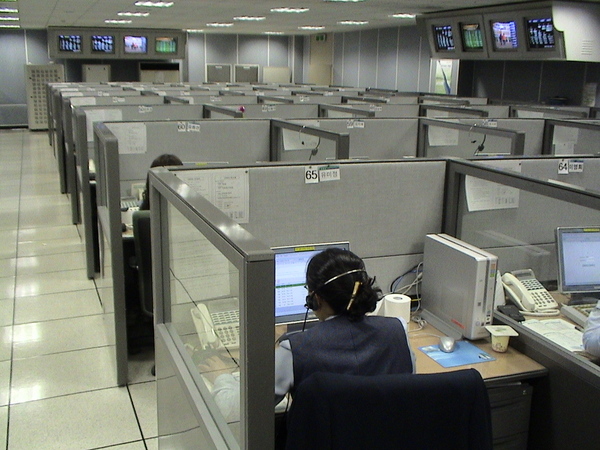April 08, 2008
Calling Kafka
- 'There's no fixed exchange with the Castle, no central exchange which transmits our calls further. When anybody calls up the Castle from here the instruments in all the subordinate departments ring, or rather they would ring if practically all the departments – I know this for a certainty – didn't leave their receivers off. Now and then, however, a fatigued official may feel the need of a little distraction, especially in the evenings and at night and may hang the receiver on. Then we get an answer, but of course an answer that's a practical joke. And that's very understandable too. For who would take the responsibility of interrupting, in the middle of the night, the extremely important work that goes on furiously the whole time, with a message about his own private troubles? I can't comprehend how even a stranger can imagine that when he calls up Sordini, for example, it's Sordini that answers.'
The call centre experience distills the political phenomenology of late capitalism: the boredom and frustration punctuated by cheerily piped PR, the repeating of the same dreary details many times to different poorly trained and badly informed operatives, the building rage that must remain impotent because it can have no legitimate object, since – as is very quickly clear to the caller – there is no-one who knows, and no-one who could do anything even if they could. Anger can only be a matter of venting; it is aggression in a vacuum, directed at someone who is a fellow victim of the system but with whom there is no possibility of communality. Just as the anger has no proper object, it will have no effect. In this experience of a system that is unresponsive, impersonal, centreless, abstract and fragmentary, you are as close as you can be to confronting the artificial stupidity of Capital in itself.
Call centre angst is one more illustration of the way that Kafka is poorly understood as a writer of totalitarianism; a decentralized, market Stalinist bureaucracy is far more Kafkaesque than one in which there is a central authority.
- 'I didn't know it was like that, certainly,' said K. 'I couldn't know of all these peculiarities, but I didn't put much confidence in those telephone conversations and I was always aware that the only things of any importance were those that happened in the Castle itself.'
'No,' said the Superintendent, holding firmly onto the word, 'these telephone replies from the Castle certainly have a meaning, why shouldn't they? How could a message given by an official from the Castle not be important?'
